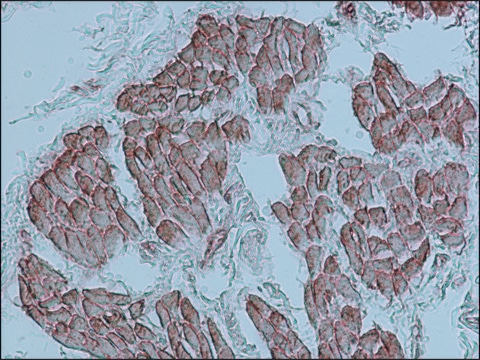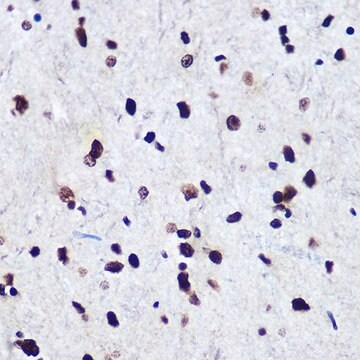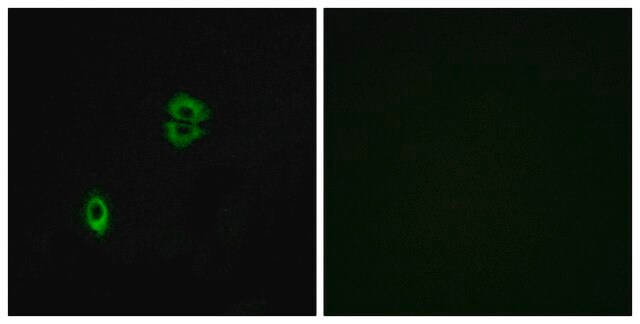SAB4200602
Anti-Actin (α-Sarcomeric) antibody, Mouse monoclonal
~1.0 mg/mL, clone 5C5, purified from hybridoma cell culture
Synonym(s):
Anti-AA959943, Anti-ACTA1, Anti-ALPHA SKELETAL ACTIN, Anti-ALPHA1 ACTIN, Anti-ASMA, Anti-Acta-2, Anti-Acts, Anti-Actsk-1, Anti-CFTD, Anti-CFTDM, Anti-Fetal isoform of skeletal alpha-actin, G-actin, Anti-MPFD, Anti-NEM1, Anti-RP5-1068B5.2, Anti-actin, alpha 1, skeletal muscle
About This Item
Recommended Products
biological source
mouse
antibody form
purified from hybridoma cell culture
antibody product type
primary antibodies
clone
5C5, monoclonal
form
buffered aqueous solution
mol wt
antigen ~42 kDa
species reactivity
human, carp, bovine, frog, sheep, rabbit, rat, snake, guinea pig
concentration
~1.0 mg/mL
technique(s)
immunoblotting: suitable
immunohistochemistry: 1-2 μg/mL using formalin-fixed, paraffin embedded human tongue
indirect ELISA: suitable
isotype
IgM
shipped in
dry ice
storage temp.
−20°C
target post-translational modification
unmodified
Gene Information
human ... ACTA1(58)
Related Categories
General description
Immunogen
Application
- western blotting
- enzyme linked immunosorbent assay (ELISA)
- immunohistochemistry
Biochem/physiol Actions
Physical form
Disclaimer
Not finding the right product?
Try our Product Selector Tool.
Storage Class Code
10 - Combustible liquids
Flash Point(F)
Not applicable
Flash Point(C)
Not applicable
Certificates of Analysis (COA)
Search for Certificates of Analysis (COA) by entering the products Lot/Batch Number. Lot and Batch Numbers can be found on a product’s label following the words ‘Lot’ or ‘Batch’.
Already Own This Product?
Find documentation for the products that you have recently purchased in the Document Library.
Customers Also Viewed
Our team of scientists has experience in all areas of research including Life Science, Material Science, Chemical Synthesis, Chromatography, Analytical and many others.
Contact Technical Service








